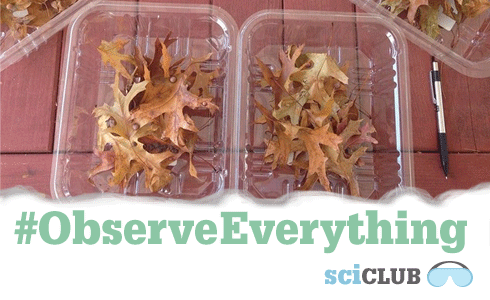11:44
Hand Sanitizer May Increase BPA Absorption
Hand sanitizer and similar products could increase the amount of BPA absorbed by the skin.
7:24
Fossil Find Pushes Back Neanderthal-Human Mixing
Researchers say a leg bone discovered in a Siberian river bank belongs to a man who lived some 45,000 years ago.
#ObserveEverything Reflection
Experience the Science Club’s #ObserveEverything project.
No Strain, No Gain: Filter Feeding Mantas
Marine biologist and biomechanist, Misty Paig-Tran details her research into these graceful giants and reveals the multiple methods of filtration they use to sift a meal from the water.
22:34
Community Labs Practice Do-It-Yourself Biology
In DIY biology labs across the country, citizen scientists take the tools of synthetic biology into their own hands.
#ObserveEverything: Staff Picks, Week #1
We observe: you’re amazing! Staff picks from the first week of Science Club’s #ObserveEverything
Here’s What A Slice Of Mouse Eye Looks Like
A special imaging technology peers inside a mouse eye, revealing the distinct roles that cells play in maintaining retinal health.
7:24
Functional Features: The Evolution of the Human Face
Human social interaction may have been the reason faces evolved to be varied and unique.
Jumping Spider Shake Down
Can you match each jumping spider dance to its vibratory song?
Shake Your Silk-Maker: The Dance of the Peacock Spider
With their ornately-colored fur, rhythmic pulsations, and booty-shaking dance moves, male peacock spiders attract the attention of spectating females as well as researchers.

